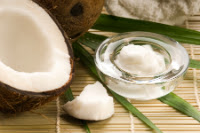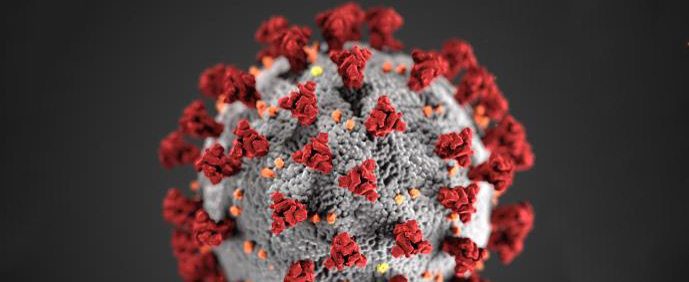Vitamin D Achieves Mainstream Medical Acceptance
It’s only within the last decade that a Vitamin D supplement became widely accepted by the conventional medicine community. Today, it’s one of the most highly regarded supplements in both natural and conventional medicine and viewed as essential to good health.
Vitamin-D made the jump to mainstream medicine through quality evidence-based natural medicine research. Studies were conducted over varying lengths of time, in various countries, and included diverse populations, ranging in age, ethnicity, occupation, activity level, and health status. These studies were conducted by independent researchers not affiliated with, or compensated by, a drug or supplement company. This large-scale, scientific analysis highlighted the critical role of Vitamin-D in our everyday heath and the overarching need for most people to augment their diets with a supplement.
Vitamin D is a catalyst for a variety of cellular processes. It supports the development of strong bones and may also help manage chronic pain and protect against the risk of some types of cancer and musculoskeletal conditions.
 Studies indicate a “world-wide epidemic” of Vitamin-D deficiency due to inadequate diets and lack of significant sunlight to trigger the biochemical production of this nutrient; we need 20 minutes a day where most of the skin is exposed without the use of sunscreen.
Studies indicate a “world-wide epidemic” of Vitamin-D deficiency due to inadequate diets and lack of significant sunlight to trigger the biochemical production of this nutrient; we need 20 minutes a day where most of the skin is exposed without the use of sunscreen.
A vitamin D deficiency can cause osteopenia, osteoporosis, increased risk of fracture, sunken pelvic area (due to rickets) and trouble getting pregnant and delivering a baby naturally.
If you are concerned that your vitamin D levels are not up to par, talk with Dr Fenske about an assessment and individualized supplement plan.
Become an Informed Consumer of Health Information
Eat this, not that. One day a certain supplement or medication is great for you, but a week later you’re being advised not to take it. How can you judge the worth of media hype around health information and determine what applies to you?
Become a discerning consumer by asking key questions and evaluating the information being presented.
Testimonials Only? If the sole evidence for a product is consumer testimony, without presentation of scientific evidence, it’s important to seek out additional information in order to determine if the claims are valid.
Breakthrough Scientific Discoveries? Dramatic breakthroughs and isolated evidence of “amazing findings” are extremely rare in science. Only when evidence is consistent across various types of studies, from lab reports to case studies to clinical trials that span a variety of populations, are we likely to have strong, reliable and valid evidence for a “breakthrough.”
Who’s that Scientist? When study data is reported, look at who conducted the research. Is the researcher affiliated with a university or research institution or with a company or organization that stands to profit? Reliable data does not come from “secret sources.” When reading an article, look for a link to a source; pay attention to where the article was published, by whom, and how it was funded.
Limited or Extensive Data? In research, results that have been replicated by different investigators across a variety of conditions, groups of people, and over time, are much more meaningful and reliable than a single study.
Is there a Cause-and-Effect? Many studies first explore correlation – a relationship between two things. For example, a study finds a relationship between eating olives and headaches. This does not mean the olives cause headaches. Further research is necessary to determine cause and effect. What kind of olives? What is the nutritional profile of the olives? Could it be something in the olives? Are men and women of different ages and races equally affected? What about people who are prone to headaches? Are the olives grown in a certain place? Correlation does not prove causation.
Placebo or Not? A placebo is an inert (inactive) substance or treatment designed to have no physiological impact. When taking a placebo produces the same effect as a supplement or medication, it’s critical to question effectiveness. Studies of medicines must prove (in the data) that the benefits are statistically significantly better than a placebo.
Statistically What? For a study to reach statistical significance means there was a large enough number of participants to measure the effect of the supplement and that the effect was caused by something other than chance.
Who’s in the Study? If a study is done in a petri dish, or on rats, it is not always applicable to human beings. Therefore, studies involving people, if well done, give us more useful and reliable information. Try to identify the population studied. If the population is 90-year old women from Indonesia, the results are not easily generalized to 40 year-old working American women with children. You want to see that the study had a large number of diverse people in it, including people like yourself.
These questions will get you off to a good start when assessing the latest health information. Your holistic health practitioner is the best person to help you determine what information applies to you.
Coconut Oil or EVOO? The Healthy Truth
Depending on who you believe, coconut oil is a nutritional miracle food or pure poison. Nearly 70% of Americans view coconut oil as a health food; only about 37% of nutritionists view it that way.
 Coconut oil is 88% fat, most of which is saturated fat. However, the structure of fat in coconut oil differs from animal-derived fats and oils, which consist mainly of long-chain triglycerides (LCTs) and linked to elevated cholesterol level. Instead, coconut oil contains a high level of medium-chain triglycerides (MCTs), a form harder for the body to convert into stored fat and easier to burn-off than LCTs. Supporters of coconut oil attribute its benefits – from fighting inflammation to healing itchy skin and adding lustre to hair – to the high MCT content.
Coconut oil is 88% fat, most of which is saturated fat. However, the structure of fat in coconut oil differs from animal-derived fats and oils, which consist mainly of long-chain triglycerides (LCTs) and linked to elevated cholesterol level. Instead, coconut oil contains a high level of medium-chain triglycerides (MCTs), a form harder for the body to convert into stored fat and easier to burn-off than LCTs. Supporters of coconut oil attribute its benefits – from fighting inflammation to healing itchy skin and adding lustre to hair – to the high MCT content.
But…
Do not rush to replace other healthy oils (like Extra Virgin Olive Oil – EVOO) with coconut oil, which is not entirely composed of MCT’s. There’s still a lot of saturated fat in coconut oil, whereas several other oils have higher MCT profiles. Choose a high quality, minimally processed cold-pressed organic, Virgin Coconut Oil, which has different health effects than highly processed varieties that raise cholesterol levels (the label may indicate “bleached” “refined” or “deodorized”, aka- R.B.D.). Buy from a trusted vendor; the terms “virgin” and “extra virgin” are not regulated the way they are for EVOO.
Keep in mind that you don’t eat fat or antioxidant molecules. You eat food and it should come from a VARIETY of healthy sources while less healthy options should be enjoyed in moderation. Until longer-term, large-scale research is done on the benefits of coconut oil, use it when necessary for preparing ethnic cuisine and in place of butter or shortening in baking, but don’t give up your EVOO.
[hr]
Guiding Principles




